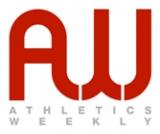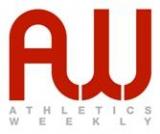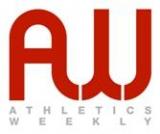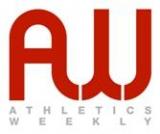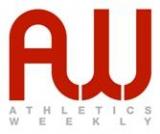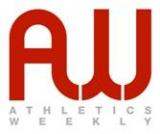Folders |
Eilish McColgan: Six things nobody tells you about injury and rehabPublished by
The steeplechaser gives her tips on getting back on track after injuryIt’s inevitable that athletes get injured, but the effects on body and mind can be devastating. Steeplechaser Eilish McColgan, beset by an ankle injury which put paid to her 2015 season, gives tips on surviving the rollercoaster… Injuries can strike fear and dread into the best of us. Along with the pain, there s a growing sense of despair that can see you completely disregard personal hygiene, leave your legs to get as hairy as a Wolverine s and, at worst, plummet into depression. Nobody prepares you for the sleepless nights, the rising stress levels and your transformation into a recluse. But there comes a time when you must step up and focus on getting better. Here are six things every athlete should prepare to overcome in order to get back on track: InsomniaOur bodies have a brilliant capacity to endure the hours of training we put them through. All that physical effort on a daily basis leaves you so energy sapped that you are likely to fall into bed like a sack of potatoes and sleep soundly. I d never had a problem sleeping. As soon as my head hit the pillow, I was out for the count, waking up fully refreshed and energised for my morning run. But injury can cause this equilibrium to shift. When injured, I ve found it exceptionally difficult to fall asleep. My body was bursting with energy and my mind was doing constant somersaults. It got so bad recently that I was prescribed sleeping tablets which quickly snapped me out of my chronic insomnia and provided the rest I needed. For less serious episodes of sleep loss, try reading a book before bed and avoid taking any electronic devices like phones and tablets into the bedroom there s loads of evidence that the light from them hinders melatonin and subsequently hampers sleep. BlubberWhether you like it or not, your body shape is going to change. The longer you are injured, the more likely it is that blubber appears where muscles once protruded. It s important to accept this is all part of the recovery process. Injuries occur as a signal you need time to recuperate and it s inevitable that, during this regeneration period, energy balance changes. Suddenly, you are consuming more calories than you are expending and your body isn t used to it, so the scales are almost certainly going to move in the wrong direction for a while. Once you begin training again it should stabilise. I try to keep myself as active as I can, focusing on maintaining my muscle mass which can be testing when the only activities you can do are the non-weight bearing variety. I find Theraband exercises very useful as a resistance aid and work on keeping up my flexibility with a daily stretching routine. I also make sure that my protein intake is slightly higher in order to allow my body the tools to repair. Mood swingsAthletes live to train and removing the daily exercise fix can cause some serious mood swings. Part of this is down to the effect the lifestyle change has on your hormones. A combination of feeling downbeat and lacking sleep means the body starts to shut down. Levels of stress hormones, like cortisol, rise as you get more anxious about your time out of the sport. It s essential to take time out mentally if you are side-lined physically. Do something else you enjoy, as happiness will speed up the injury healing process. I ve found that writing a regular blog and a journal each day gives me an outlet and allows my brain to put everything into perspective. Hormonal rollercoasterAmong female athletes, the most unexpected things can happen to your hormones when you re injured. I found my oestrogen levels were dropping by the week to the point when my menstrual cycle stopped altogether. Obviously it s a concern as long-term amenorrhea, or lack of periods, can raise the risk of thinning bones as you get older. You may need to reduce your cross training load, as I did, for things to return to normal. Another tip is to include Maca Powder into your porridge or smoothies a small amount of this ground-root can sometimes help to balance hormones. Intense boredomRunning and training are a form of mental release. I love being outdoors, able to focus only on feeling the air brush past me and the ground under my feet. Being stuck indoors all day is my worst kind of nightmare. You can find yourself going stir crazy when you re injured. During my first week after surgery when I was told to stay completely off my feet, I found myself singing to my partner s dog and watching hours of mind-numbing reality TV. I realised this wasn t conducive to maintaining my sanity. Keeping yourself mentally stimulated is crucial whether it s through reading, writing or staying active with another form of exercise. Don t be scared to try something new. I ve discovered aqua jogging as a brilliant way to top up my cardiovascular fitness and stay in shape. LonelinessBeing stuck at home, you are really going to miss the social side of the sport. We often take for granted the close friendships we develop with training partners and, more than anything, I ve missed going out for a run with friends and my training squad at the track. An injured athlete can feel like a recluse, become paranoid about being forgotten and convinced that because you are out of sight, you are out of mind. Make this a time to visit family and friends outside of athletics. I ve made a concerted effort to get in touch with people not involved with the sport whom I barely get to see much any more. We live in a social media era and now is the time to take advantage of it. Keep or regain a connection with the people who enrich your lives. Ignore the rest. The post Eilish McColgan: Six things nobody tells you about injury and rehab appeared first on Athletics Weekly. Read the full article at: www.athleticsweekly.com
|
